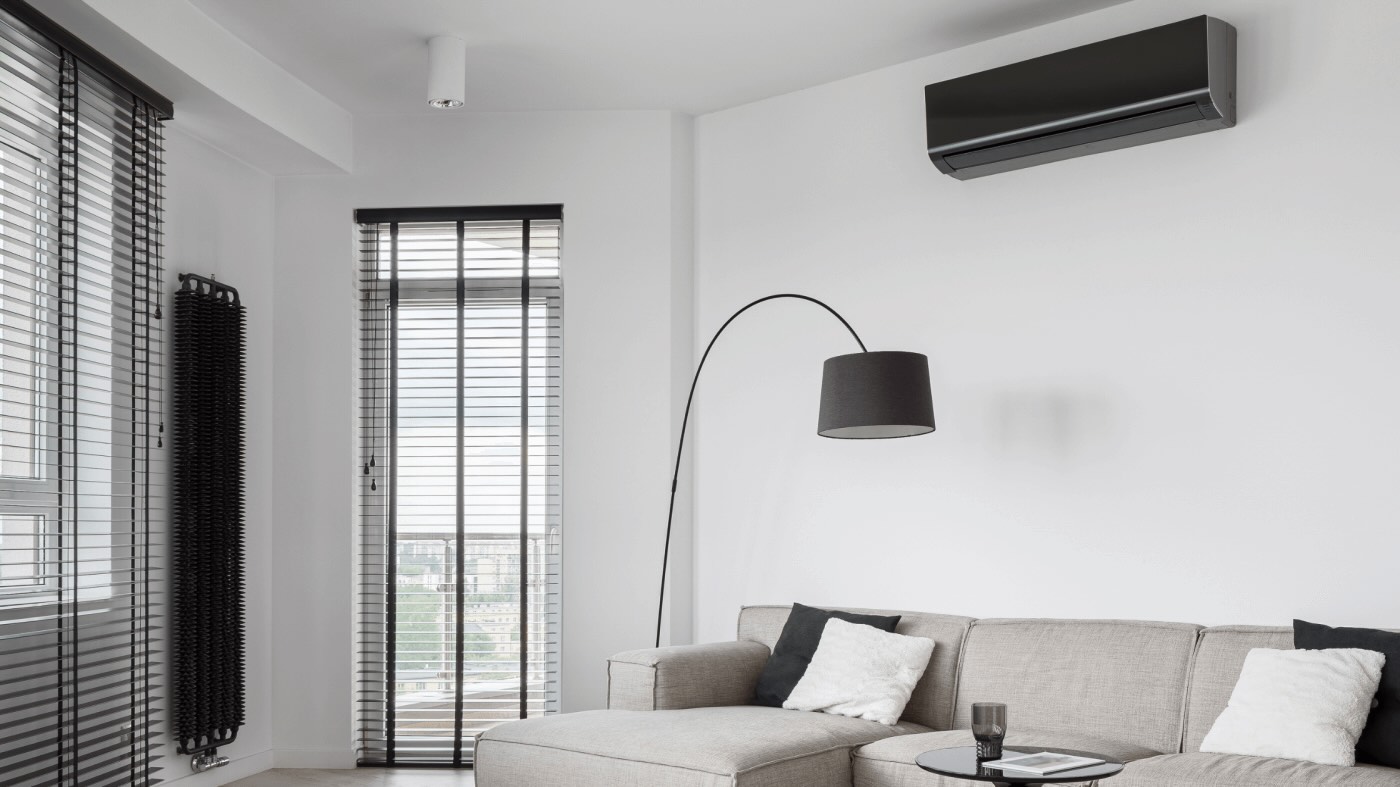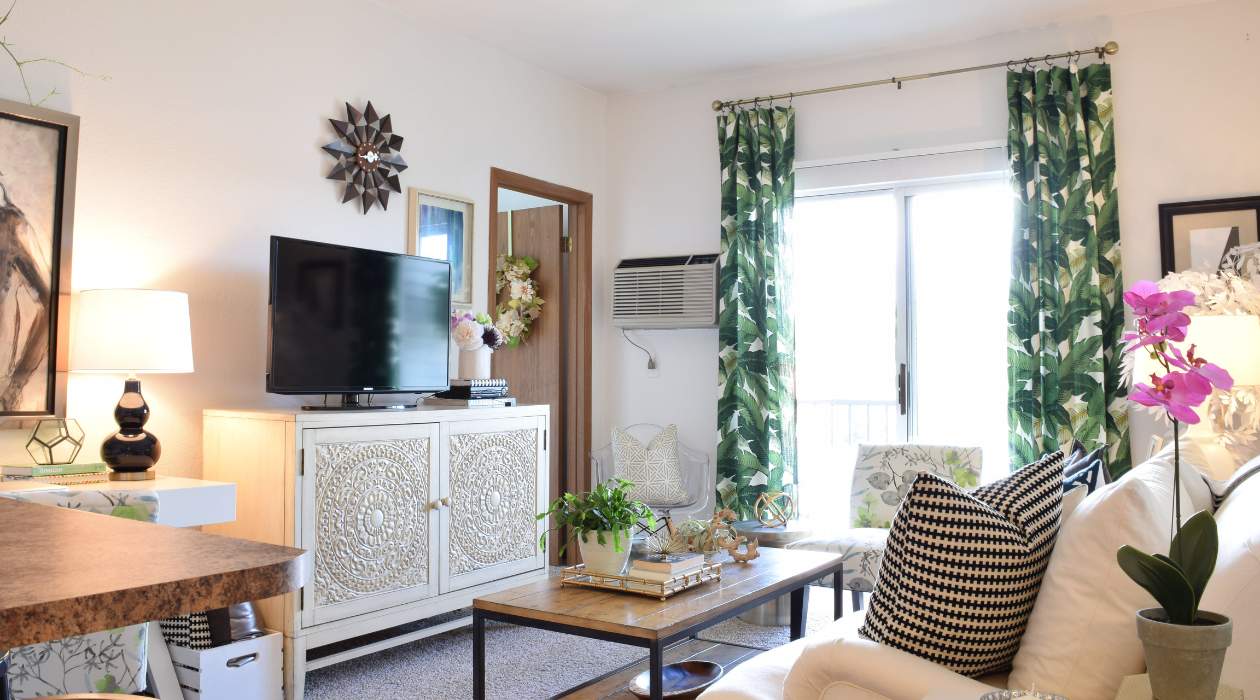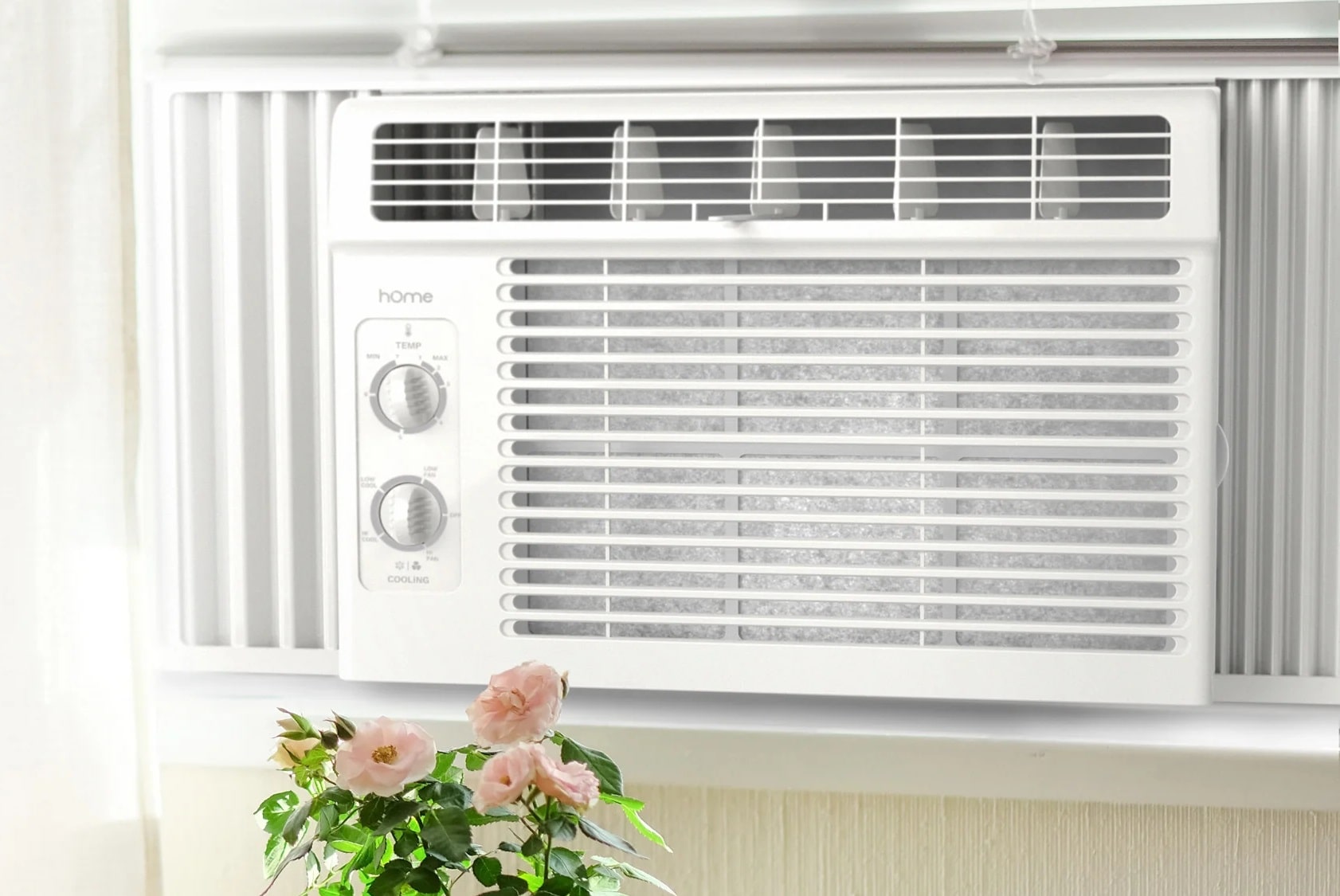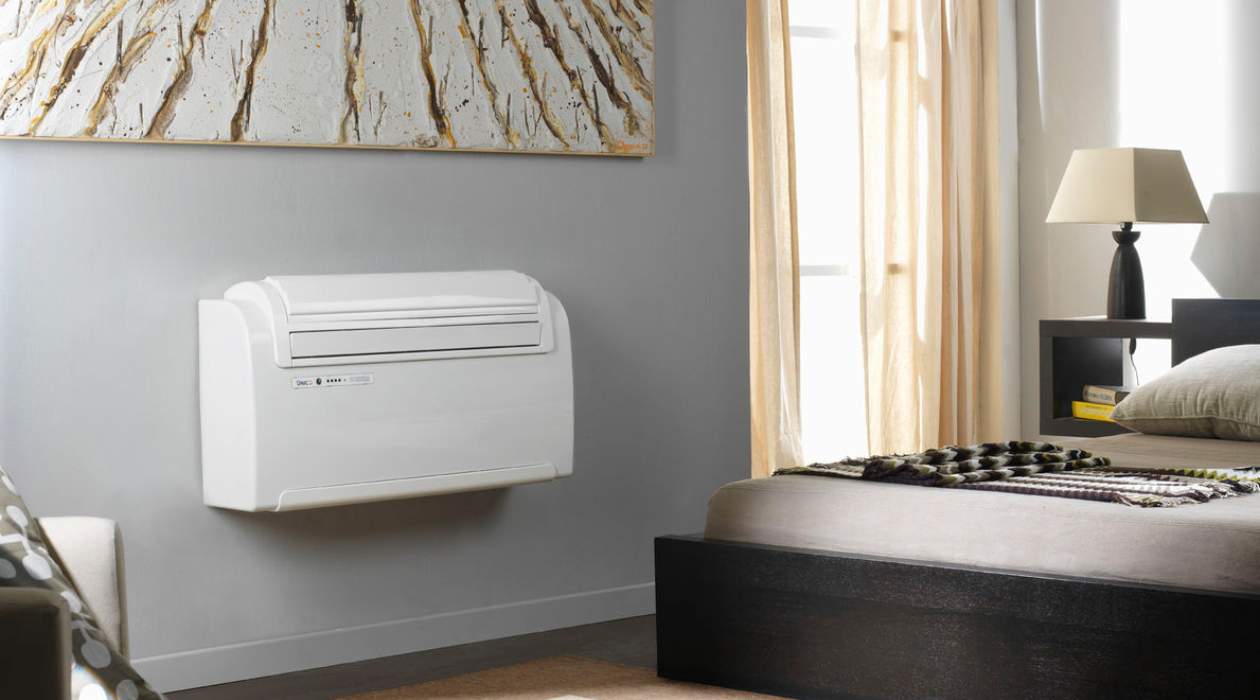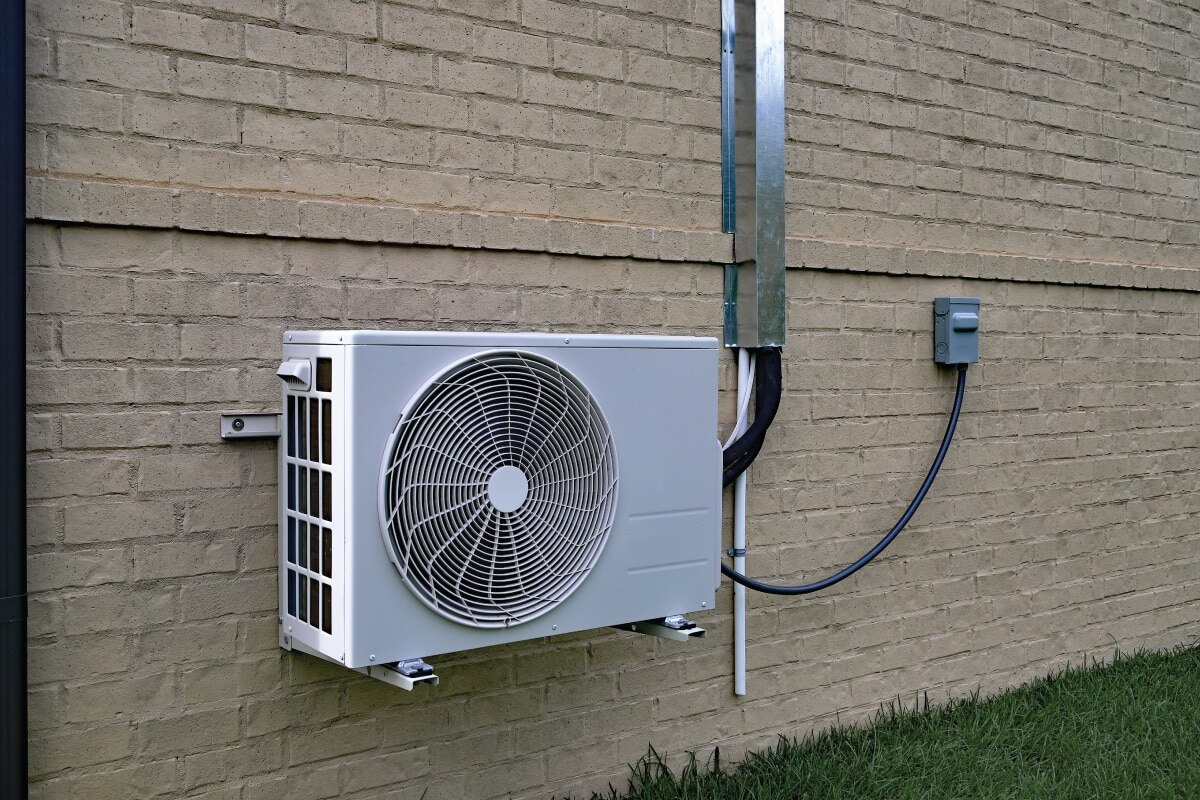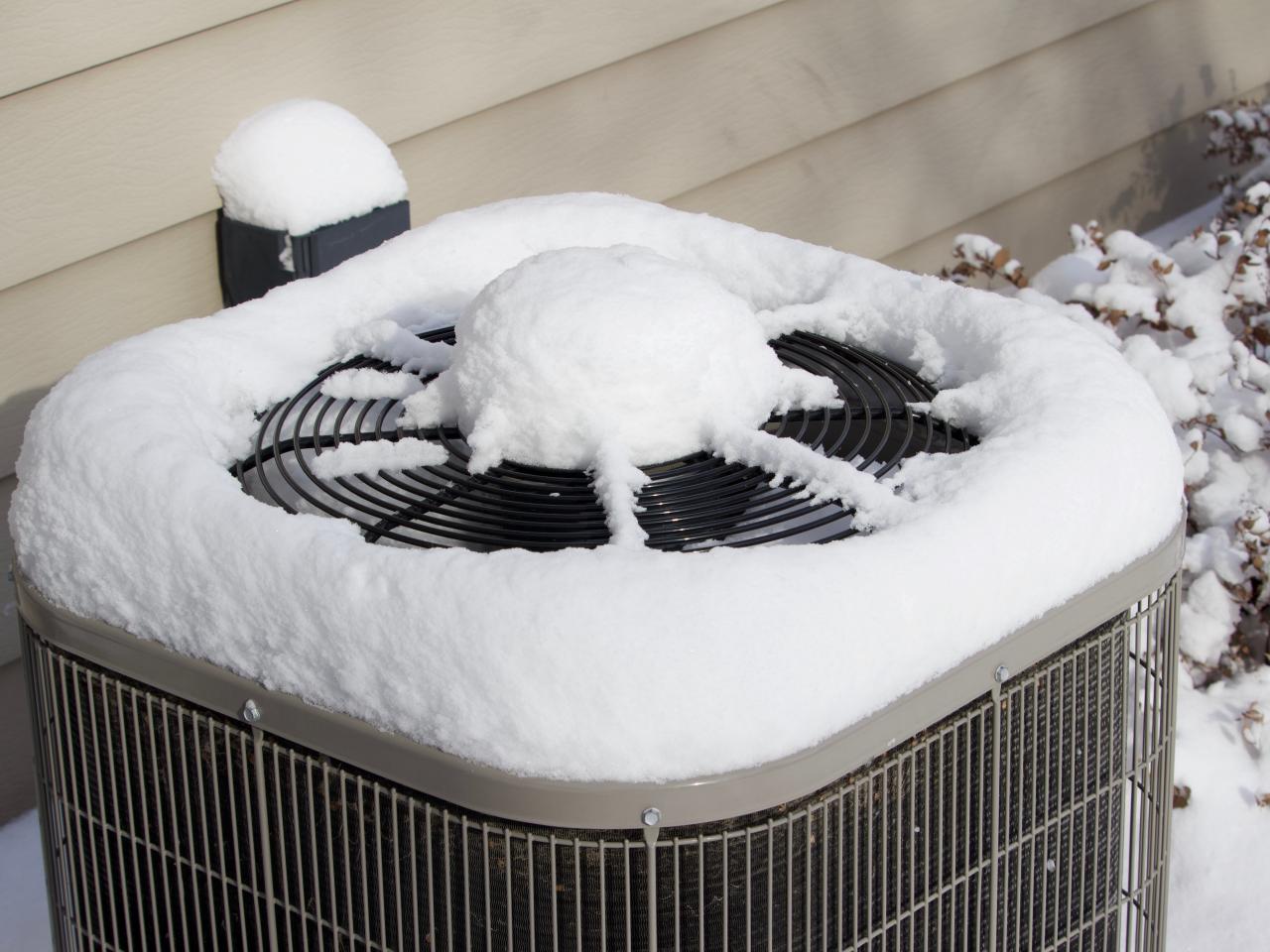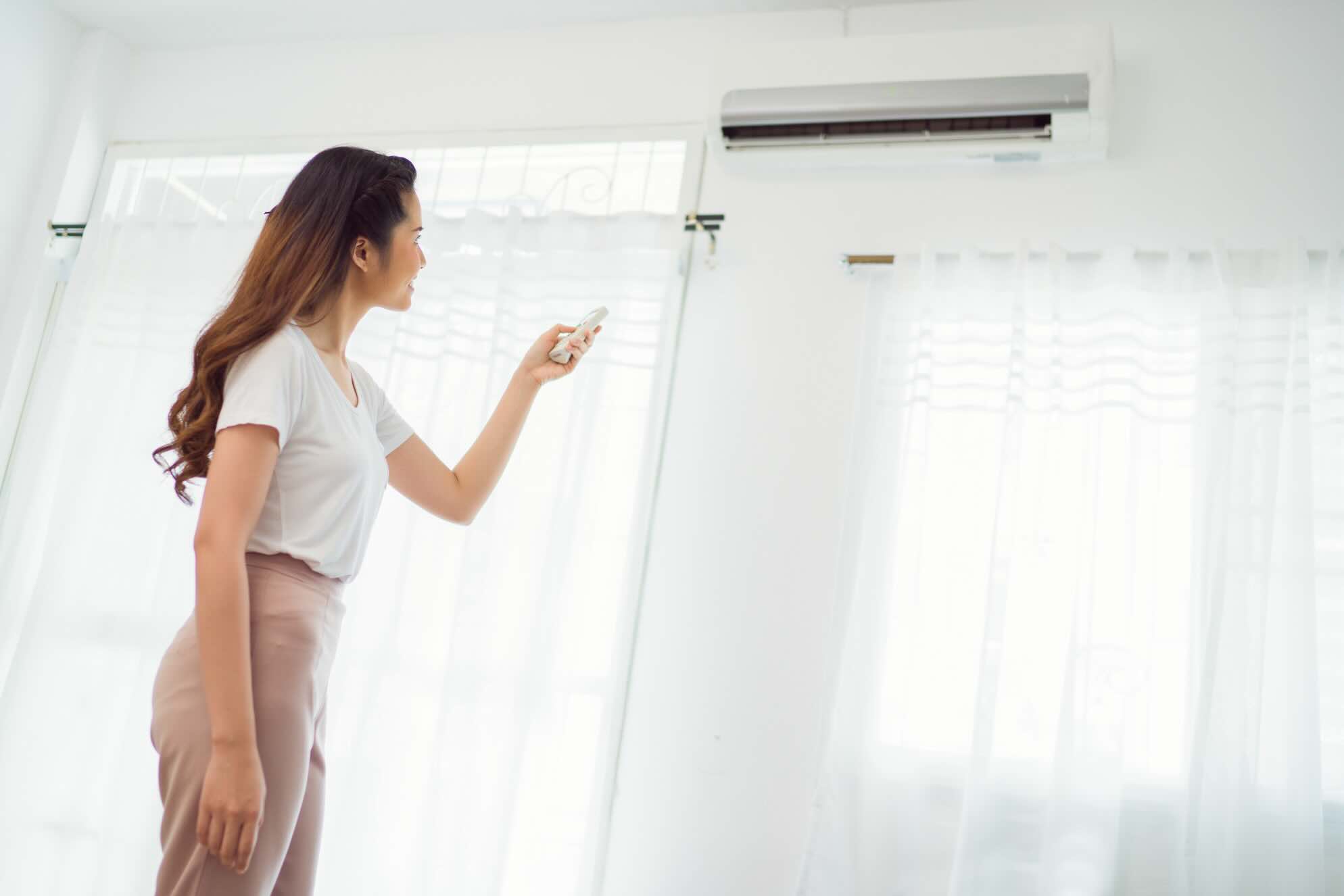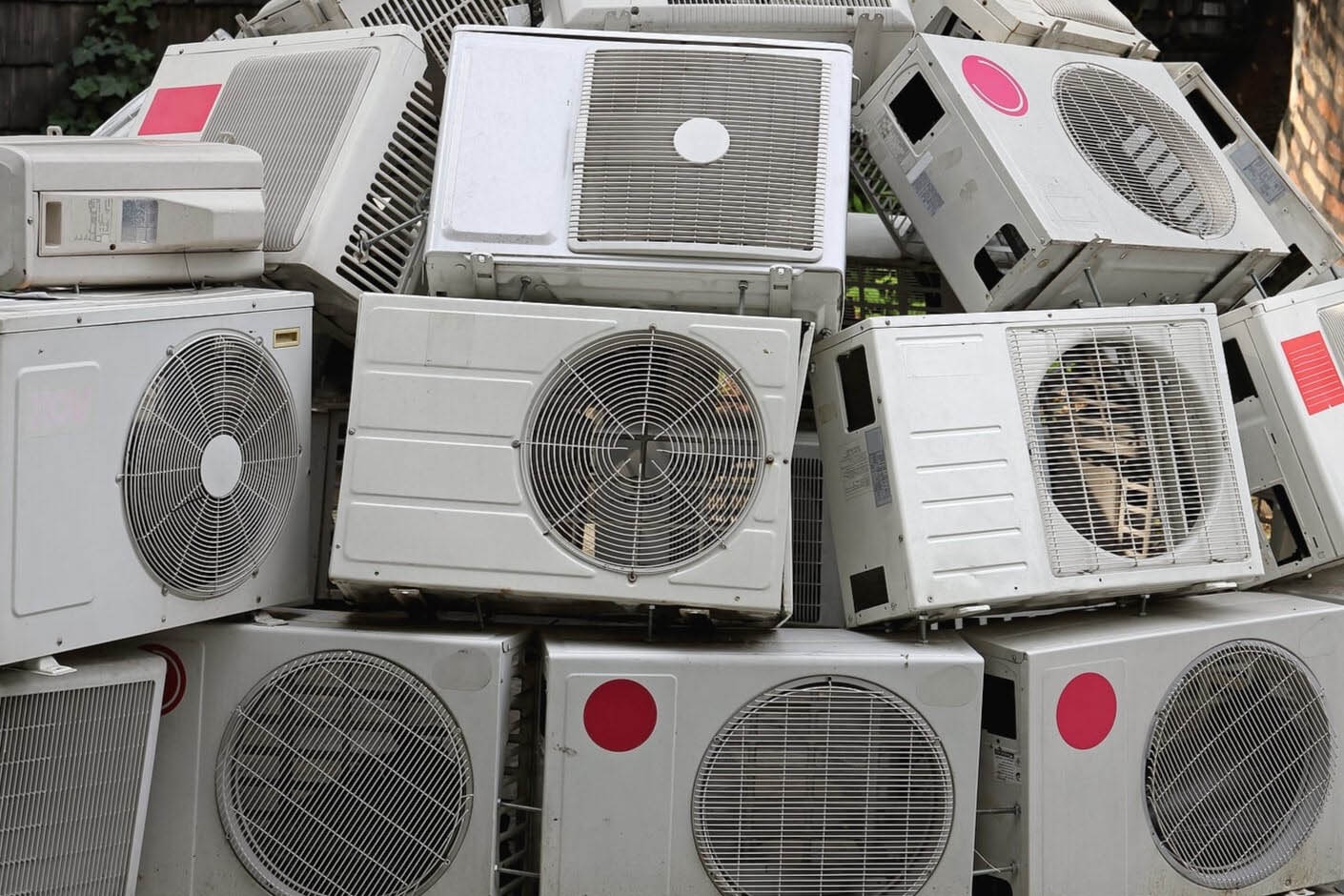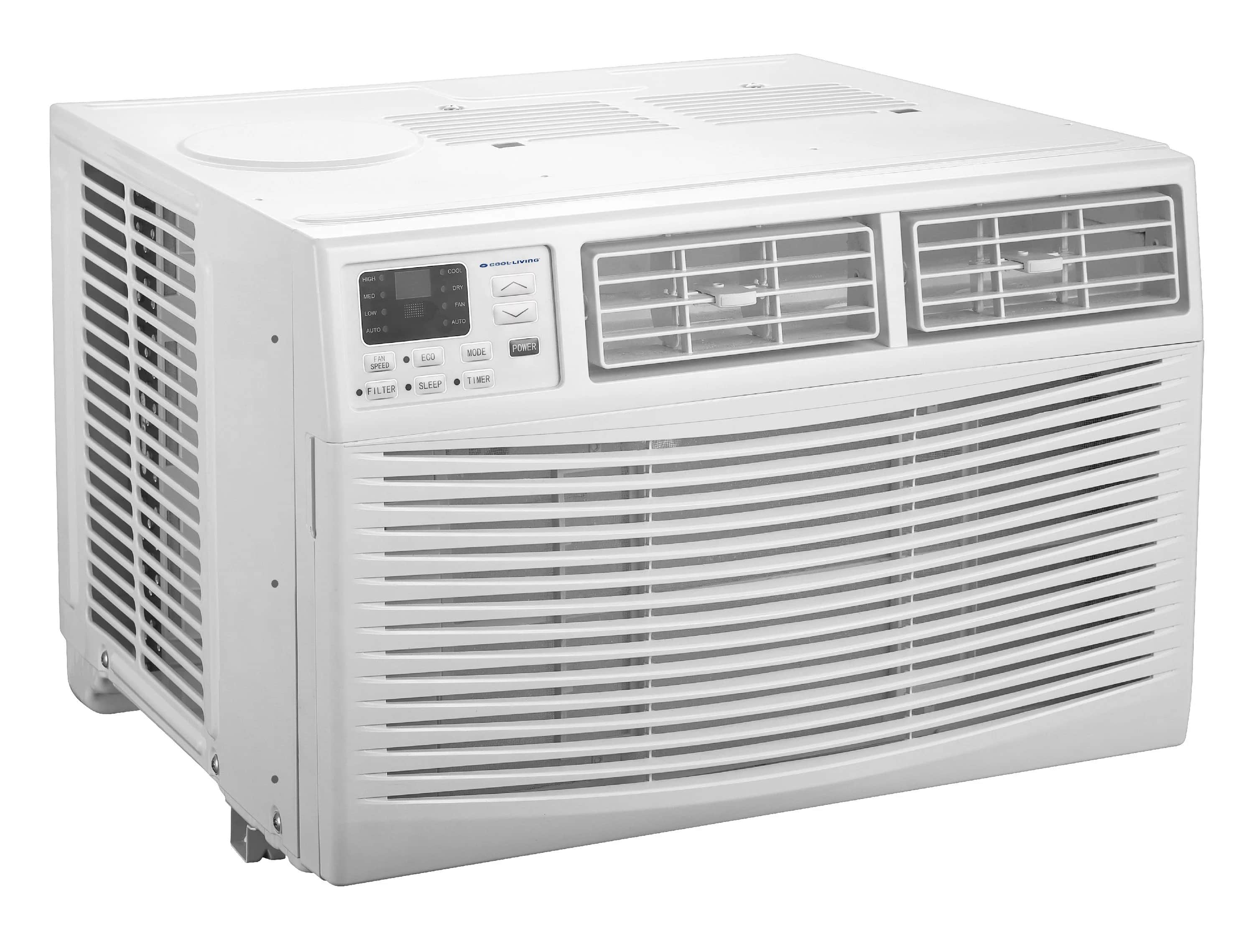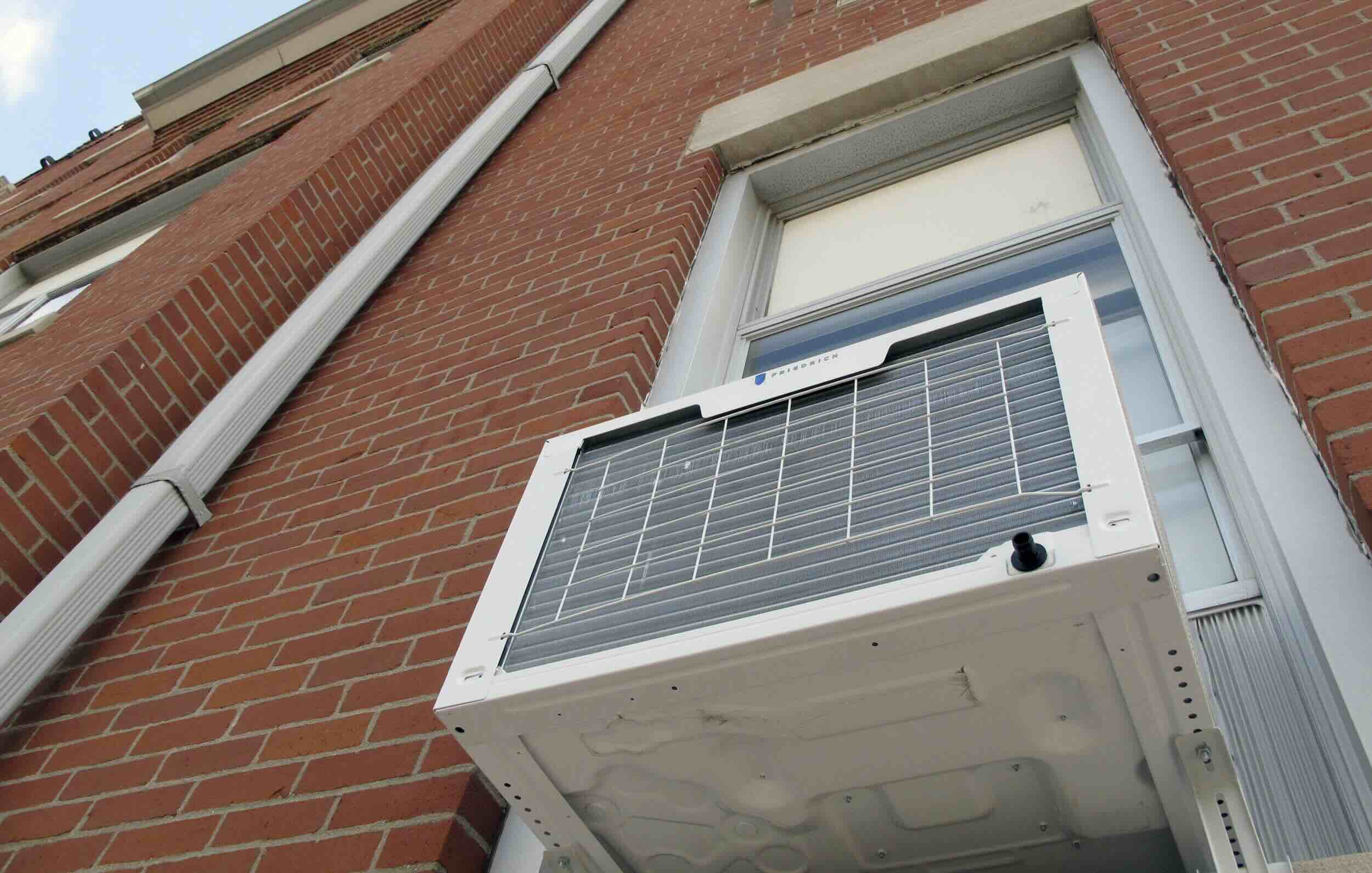Home>Home Maintenance>How To Calculate The Size Of An Air Conditioner
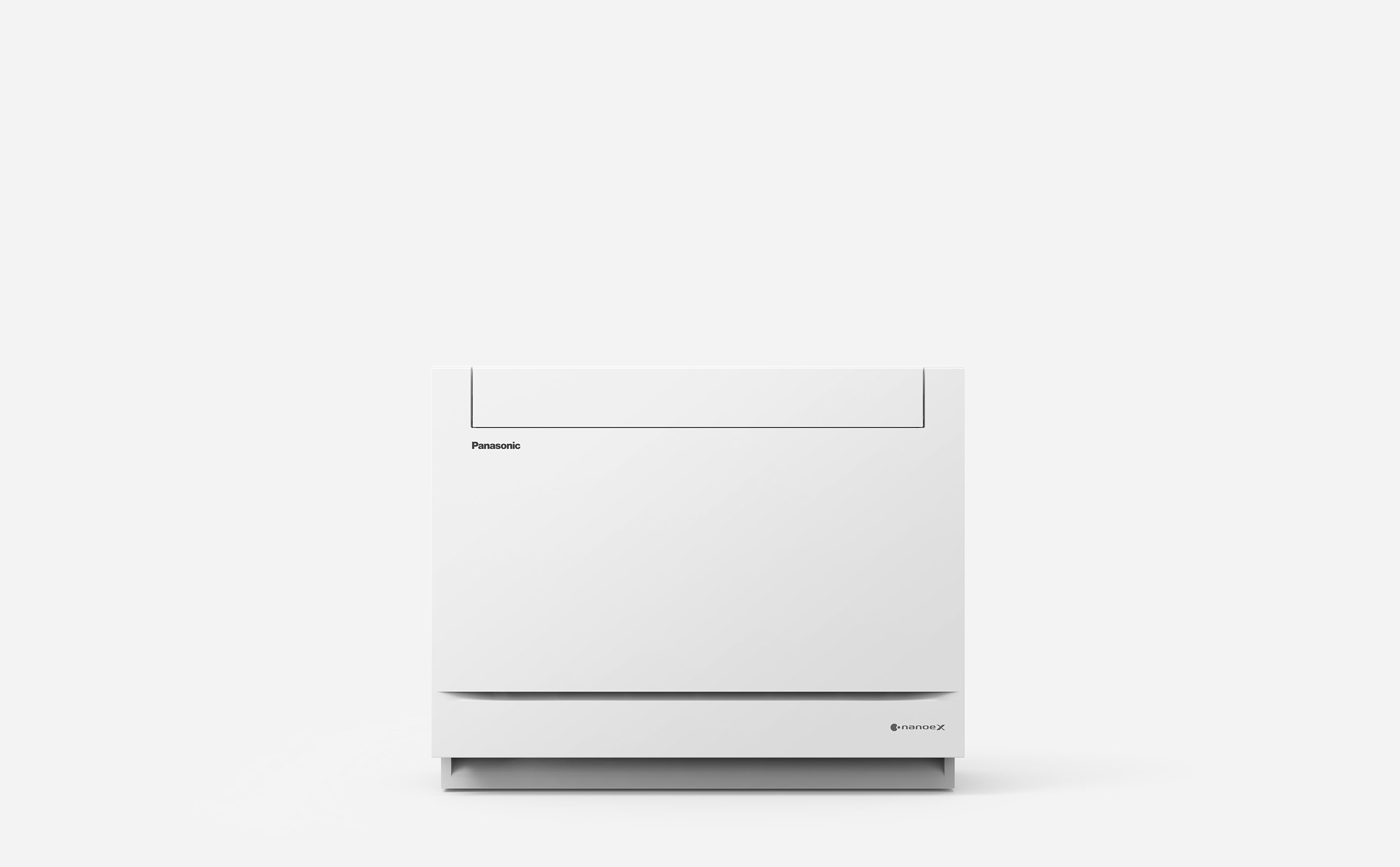

Home Maintenance
How To Calculate The Size Of An Air Conditioner
Modified: March 7, 2024
Learn how to calculate the ideal size of an air conditioner for your home, ensuring optimal comfort and energy efficiency. Discover essential home maintenance tips for choosing the right cooling system.
(Many of the links in this article redirect to a specific reviewed product. Your purchase of these products through affiliate links helps to generate commission for Storables.com, at no extra cost. Learn more)
Introduction
Having the right size air conditioner is essential for maintaining a comfortable home environment. An air conditioner that is too small may struggle to cool your space effectively, while one that is too large may lead to excessive energy consumption and high utility bills. To ensure optimum cooling performance and energy efficiency, it’s crucial to calculate the correct size of an air conditioner for your home.
Calculating the size of an air conditioner involves considering several factors, including the square footage of the room, insulation levels, climate and temperature, the number of occupants, and heat-generating appliances. This article will guide you through the process of determining the appropriate size of an air conditioner for your specific needs.
Key Takeaways:
- Choose the right size air conditioner by considering room size, insulation, climate, occupants, and appliances. Calculating BTU requirements ensures efficient cooling without wasted energy.
- Look for energy efficiency, noise levels, and installation requirements when selecting an air conditioner. Consulting with professionals can provide personalized recommendations for optimal comfort and satisfaction.
Read more: How To Calculate Duct Size For HVAC
Factors that Determine Air Conditioner Size
When it comes to determining the size of an air conditioner for your home, several factors come into play. Understanding these factors will help you make an informed decision and ensure efficient cooling. Here are the key factors to consider:
- Square footage of the room: The size of the room or area you want to cool plays a significant role in determining the air conditioner size. A larger room will require a more powerful unit to cool it effectively.
- Insulation levels: The insulation levels in your home affect how well it retains cool air. Good insulation reduces heat transfer and allows the air conditioner to work more efficiently.
- Climate and temperature: The climate and average temperatures in your area determine the cooling load your air conditioner needs to handle. Hotter climates generally require larger units to maintain comfortable temperatures.
- Number of occupants: The number of people in a room affects the cooling requirement. More occupants generate body heat, which increases the cooling load on the air conditioner.
- Heat-generating appliances: Appliances like refrigerators, ovens, and electronics generate heat. If you have many heat-generating appliances in the room, it will increase the cooling load and require a larger air conditioner.
Considering these factors will help you determine the primary cooling requirements for your space. However, it’s important to note that these are just general guidelines, and other unique factors may need to be taken into account for a more accurate assessment. The next section will explain how to calculate the specific BTU (British Thermal Units) requirements for your air conditioner.
Calculating BTU Requirements
To calculate the BTU (British Thermal Units) requirements for your air conditioner, you need to determine the cooling load of the space. The cooling load is the amount of heat that needs to be removed from the room to maintain a comfortable temperature. Here’s how to calculate it:
Determining the Cooling Load
The cooling load can be estimated by considering the square footage of the room, the number of occupants, and the heat-generating appliances. Additionally, factors like insulation, windows, and ceiling height should also be taken into account for a more accurate assessment. Various online calculators and software tools are available to assist you in this process.
Formula for Calculating BTU Requirement
Once you have determined the cooling load, you can use the following formula to calculate the BTU requirement for your air conditioner:
BTU requirement = Cooling load (in BTU) = Area (in square feet) × (Cooling load factor + Occupancy factor + Appliance factor)
The cooling load factor takes into account the insulation level, windows, and other factors unique to your space. The occupancy factor considers the number of occupants, and the appliance factor considers the heat-generating appliances in the room. These factors can vary depending on the specifics of your home and should be adjusted accordingly.
It’s worth noting that many air conditioner manufacturers provide BTU recommendations based on the square footage of the room. While these recommendations can be a starting point, they may not consider all the factors that contribute to the cooling load. Calculating the BTU requirements using the formula ensures a more accurate assessment and helps you choose the right size air conditioner.
Example Calculation
Let’s walk through an example to demonstrate how to calculate the BTU requirements for an air conditioner. Suppose we have a bedroom with the following specifications:
- Area: 200 square feet
- Insulation: Good
- Number of occupants: 2
- Heat-generating appliances: None
First, we need to determine the cooling load factors for our calculation. Since the insulation is good, we can assign a cooling load factor of 1. The occupancy factor for two occupants is typically 600 BTU per person, so we assign a factor of 1200 BTU. In this case, since there are no heat-generating appliances, the appliance factor is 0.
Using the formula mentioned earlier, we can calculate the BTU requirement:
BTU requirement = 200 sq ft × (1 (cooling load factor) + 1200 BTU (occupancy factor) + 0 (appliance factor))
BTU requirement = 200 sq ft × 1201 = 240,200 BTU
In this example, the calculated BTU requirement is 240,200 BTU. Since air conditioners are typically measured in thousands of BTUs, we would round this up to the nearest thousand. Therefore, an air conditioner with a capacity of 240,000 BTU would be appropriate for this bedroom.
Remember, this is just a simplified example, and real-world scenarios may involve more complex calculations. Consulting with a professional or using specialized software can help you obtain a more accurate assessment of your air conditioner’s requirements.
Adjusting for Unique Factors
While the calculation we discussed earlier provides a good starting point for determining the size of an air conditioner, there are certain unique factors that need to be considered to ensure more accurate sizing. Let’s take a look at a few of these factors:
High Ceilings
If your room has high ceilings, it will have a larger volume of air that needs to be cooled. As hot air rises, it can make your space feel warmer. To compensate for this, it’s recommended to increase the BTU requirements by around 10% for every foot of ceiling height above the standard 8 feet. This adjustment will help your air conditioner handle the additional cooling load caused by the high ceilings.
Sun-Exposed Windows
Rooms with windows that receive direct sunlight for extended periods can experience higher heat gains. The sunlight increases the temperature in the room, making it harder for the air conditioner to cool. To account for this, it’s advisable to increase the BTU requirements by roughly 10% to 20% for each window facing the sun. Adding this adjustment will ensure that the air conditioner can effectively counteract the heat gain from sun-exposed windows.
Non-Insulated Walls or Attic Spaces
Rooms with poor insulation, especially non-insulated walls or attic spaces, are more prone to heat transfer from outside. These areas allow heat to seep into your home, creating additional cooling demands. If your room has inadequate insulation, it is recommended to increase the BTU requirements by 20% to 30% to compensate for the increased cooling load caused by the lack of insulation.
Taking these unique factors into account will help you adjust the BTU requirements for your air conditioner more accurately. By considering the specific characteristics of your space, you can ensure that the air conditioner you choose is well-equipped to meet the cooling demands and provide optimal comfort.
Other Considerations
While determining the correct size of an air conditioner is crucial, there are other important factors to consider when making your final decision. These factors can greatly impact the performance, comfort, and overall satisfaction with your air conditioner. Let’s explore a few other key considerations:
Energy Efficiency Ratings
Energy efficiency is an important aspect to consider when choosing an air conditioner. Look for units with high energy efficiency ratings, denoted by the SEER (Seasonal Energy Efficiency Ratio) or EER (Energy Efficiency Ratio) ratings. Higher ratings indicate better energy efficiency, which can result in lower energy consumption and reduced utility bills over time. Investing in a more energy-efficient air conditioner can offer long-term savings while also being environmentally friendly.
Noise Levels
Noise levels can significantly affect your comfort levels, especially if the air conditioner is installed in a bedroom or living area. Look for air conditioners with low noise ratings, expressed in decibels (dB). Opting for quieter units can help you create a peaceful and relaxing home environment, ensuring a good night’s sleep and minimizing disruptions during daily activities.
Installation Requirements
Before purchasing an air conditioner, consider the installation requirements and compatibility with your home. Some units may require specific ventilation systems, electrical requirements, or ductwork modifications. It’s essential to evaluate these installation requirements and ensure they are feasible in your home. If you’re unsure or uncomfortable with the installation process, it’s always recommended to consult a professional HVAC technician to ensure proper installation and optimal performance of your air conditioner.
By considering these additional factors, you can make a more informed decision when choosing the right air conditioner for your home. Energy efficiency, noise levels, and installation requirements play significant roles in maximizing comfort and long-term satisfaction with your cooling system.
Conclusion
Calculating the size of an air conditioner is essential for maintaining a comfortable and energy-efficient home. By considering factors such as the square footage of the room, insulation levels, climate, number of occupants, and heat-generating appliances, you can determine the right BTU requirement for your air conditioner. This ensures that it can effectively cool your space without wasted energy or excessive utility bills.
It’s important to remember that while there are general guidelines and formulas to calculate BTU requirements, every home is unique. Adjustments may need to be made for factors such as high ceilings, sun-exposed windows, and non-insulated walls or attic spaces. Taking these factors into account will help you obtain more accurate sizing to meet the specific needs of your space.
In addition to sizing, it’s important to consider other essential factors such as energy efficiency ratings, noise levels, and installation requirements. Opting for an energy-efficient air conditioner can lead to long-term savings on energy bills while reducing your carbon footprint. Considering noise levels ensures a peaceful indoor environment, especially in bedrooms and living areas. And ensuring proper installation by consulting with professionals guarantees optimal performance and longevity of your air conditioner.
Ultimately, calculating the size of an air conditioner and considering these other factors will help you make an informed decision that promotes comfort, energy efficiency, and overall satisfaction. If you’re unsure or have complex requirements, it’s always best to consult with an HVAC professional who can provide personalized recommendations based on your specific needs.
By investing time and effort into choosing the right size air conditioner and considering these important factors, you can enjoy a comfortably cool home and peace of mind knowing that your cooling system is efficient and well-suited to your needs.
Frequently Asked Questions about How To Calculate The Size Of An Air Conditioner
Was this page helpful?
At Storables.com, we guarantee accurate and reliable information. Our content, validated by Expert Board Contributors, is crafted following stringent Editorial Policies. We're committed to providing you with well-researched, expert-backed insights for all your informational needs.
